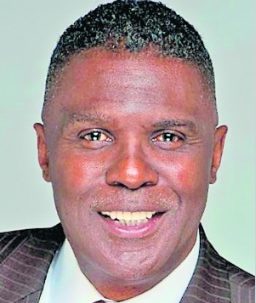By Glenn Ellis
As the weather gets warmer, drinking enough water is more important than ever. Now that we are entering summer and attending events in hot weather, there are some points that everyone should be aware of when out in hot, humid weather.
Most of us are accustomed to being in the comfort of air conditioning almost most of the time. When we attend a hot outdoor event, being unaccustomed to the sun, heat, and increased humidity, some people have problems dealing with the extreme variation of circumstances. Even those who are used to being out in the heat need to be careful when it is extremely hot.
The human body contains a high proportion of water, so when the temperature rises and the body tries to cool itself by sweating, dehydration can occur, particularly in children. Dehydration is the loss of water and salts from the body. We need water to maintain our blood volume and to ensure our other body fluids function properly, as well as to maintain our blood pressure. Along with water, the body also needs electrolytes, which are salts normally found in blood, other fluids, and cells.
Water is an important nutrient that composes approximately 50-60 percent of our body weight. For years, we’ve been told to drink eight glasses of water a day for optimal health. But that one-size-fits-all prescription no longer fits a training athlete. Fluid intake is an important part of training and athletic performance. The benefits of adequate fluid and electrolyte intake during exercise include lower heart rate, improved blood flow to working muscles and skin, body temperature control, support for muscular contraction, preventing hyponatremia (low blood sodium levels), quick recovery, improved performance and lower perceived exertion.
A good rule of thumb: Sip half your body weight in ounces of water every day. A 150-pound person, for example, should then down 75 ounces, or just more than 9 cups of liquid daily.
Not Just Water Hydrates
For athletes, hydration is essential, especially during the hot, humid days of summer. Kids need water, too, particularly when they’re outside playing in the sun all day.
Drinking water throughout the day in general is important. It’s just as important for someone who is working at a computer all day to drink water, as it is for somebody who is running a marathon.
But it’s not just water that hydrates you. Juices, coffee, tea and sports drinks count, too. Coffee is no longer thought to be a dehydrating beverage.
Twenty percent of your water intake comes from the food you eat. High-water foods have another benefit: They can help you slim your waistline. Cantaloupe, watermelon, berries, tomatoes, leafy greens – all of these things are nutrition powerhouses. These foods are also low in calories. They fill you up, so you’re very satisfied, they add hydration, and they also help you control your weight!
Watermelon is the juiciest of fruits. Sucking on a wedge of watermelon is even more refreshing than a cold can of soda, and with a 92 percent water content it’s a tasty way to rehydrate.
Spicy food makes you sweat and helps you to cool down. Some people disagree and say it warms you up, but I don’t think so. Though your mouth and face may feel hot, it will cool you down in the long run.
Heat Related Problems
The heat makes you sweat, which cools you down, but that also means you’re constantly losing fluid. This can lead to some serious, and in some cases life-threatening health problems.
There are three stages of heat related problems: heat cramps, heat exhaustion, and heat stroke. Heat cramps are the least serious, but are an indication of approaching trouble. Symptoms of heat cramps are: increased heart rate; a feeling of faintness; dizziness; extreme tiredness; hot or sweaty skin and a flushed face; and possibly nausea or vomiting. Heat exhaustion is more serious with the symptoms similar to heat cramps, but confusion sets in and the body temperature increases. Heat stroke is the most serious and if left untreated, brain damage can occur. Some symptoms that may occur with heat stroke are hot, dry skin; dry mouth; mental confusion; headache; shallow breathing; loss of consciousness; hysteria; and extreme weakness.
Although fluid loss occurs during hard physical work, even simple tasks like gardening, walking or riding a bike can result in a significant loss of fluid within a very short period. We can also lose a lot of fluid in hot or humid conditions.
If someone is suffering from heat exhaustion or heat stroke, get medical help immediately. Get them out of the heat; remove the outer layers of clothing, and loosen any tight clothing; lay them down with the legs elevated; fan them and if the person has dry skin, apply wet compresses.
Don’t wait until you’re thirsty! Drink water throughout the day to prevent dehydration or over exhaustion. Use the color of your urine to guide if you’re hydrated enough — the clearer the better.
Remember, I’m not a doctor. I just sound like one.
Take good care of yourself and live the best life possible!
Glenn Ellis, is a Health Advocacy Communications Specialist. He is the author of Which Doctor?, and Information is the Best Medicine. For more good health information, visit: www.glennellis.com




